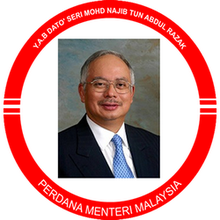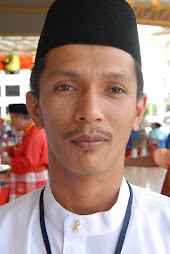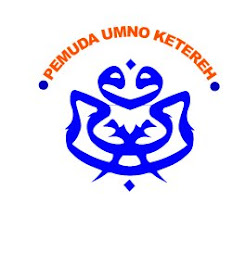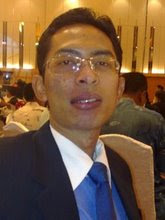Dear all,
An interesting speech by Tun Dr. M (see at the end) about the global financial crisis and lessons for Asia. .A complex issue indeed, yet Tun manages to put it in a very simple language for us laymen to understand. Just shows the quality of his mind, even at that age. The solution he proposes also are worth studying in detail.
Having that said however, I feel there is one fundamental error Tun made in his analysis! Tun attributed one of the causes (of the global financial crisis) to the Banks `power to create UNLIMITED money', plus stating that there is no `limit to how much loans (to asset/capital/ reserve?) that banks can offer.Tak percaya Tun did say that?I quote the following from his speech;
10. Although banks may lend 10 times more than the money they have, what is to prevent them from lending much more than this. And so the big American banks began to lend far more than 10 times..
28. Why did all these things happen? Mainly it is because of greed and too much power being given to the banks to create money..
43. ...... The new banks (after reforms) must be allowed less liberty to create money.
57. Once we know and understand the causes then we can plan to avoid them. Sub-prime lending, creation of too much money by the banks, lack of Government supervision, leaving central banks in the hands of the private bankers etc etc must be avoided by Asians.
62. Asians must therefore be prepared to develop new banking systems which would not be given the power to create unlimited money.... The loans must also be limited based on the assets owned by the banks. Loans in excess of this must be subjected to Government scrutiny and in big cases to Government approval.
COMMENTS :Why I said there is a fundamental error? Maybe Tun is not aware that banks are already regulated in the way how much money (through loans) that they can create. There is this thing called the "loan-to-deposit ratio". Plus other capital ratios for banks to conform.
1. A higher loan to deposit ratio indicates aggressive lending; a lower ratio indicates tight money. At the height of the dot com bubble (in the U.S), this ratio reached a frothy 105%. In 2004, it hit a low of 93.8%. Today, it stands at 98.6%, near the midpoint of its ten-year range. See
http://findarticles .com/p/articles/ mi_m0EIN/ is_2009_Feb_ 2/ai_n31299916/2. And very seldom is that ratio more than 100% for banks, whether in the U.S or throughout the world.
3. Plus there are other regulations like Tier-1 Capital Adequacy Ratio, Total Adequacy Ratio banks must conform to. For example, see
http://www.straitst imes.com/ STI/STIMEDIA/ pdf/20081010/ SingaporeBanksCa pitalStrength. pdfThus it is not true that banks have the power to create unlimited money (as Tun claims), and there are already limits to how much loans (or risks) banks can offer (or absorb) which are imposed by regulators. And internally, banks also have their own policies/limits. Internationally, there is also Basel II. See
http://www.federalr eserve.gov/ generalinfo/ basel2/default. htmPerhaps Tun overlook those facts. Otherwise, good speech and interesting analysis.
Salam,
helmiehassan
speech taken from
http://bigdogdotcom .wordpress. com/Tun Dr. Mahathir: Global Financial Crisis & Lessons for AsiaSPEECH BYTUN DR MAHATHIR BIN MOHAMADAT THE NATIONAL SCHOOL OF DEVELOPMENT, BEIJING UNIVERSITY, CHINAON 29 APRIL 2009 —————-
"The Global Financial Crisis of the 21st Century -Lessons for Asia
"SPEECH BYTUN DR MAHATHIR BIN MOHAMADAT THE NATIONAL SCHOOL OF DEVELOPMENT, BEIJING UNIVERSITY, CHINAON 29 APRIL 2009 —————-
"The Global Financial Crisis of the 21st Century -Lessons for Asia"
1. Firstly I would like to thank the National School of Development of Beijing University for this invitation to speak on the subject of the Global Financial Crisis of the 21st Century – Lessons for Asia.
2. I must admit that I am not trained in finance and not even in economics. I am a doctor of medicine. My little knowledge about finance and economy came through my serving as the Prime Minister of Malaysia during which time I had to handle many financial crisis, the worst of which was the 1997-98 currency crisis. To handle that crisis I had to ask a lot of economists and financial people a lot of questions and of course I had to read a lot on the subjects. However not being from any economic school or financial institution, I was not constrained by the theories that are taught in such places. I could therefore strike out on my own and also do unorthodox things. Unfortunately I am not too familiar with the technical words which those learned in the subject use and I hope you will recognise the words I use instead.
3. I am afraid my views on the present crisis are also unorthodox as they are the results of my untutored mind analysing what is happening.
4. We talk of the Global Financial Crisis of the 21st Century. But of course just as the 21st Century is a continuation of the 20th Century and before, the financial crisis is a continuation of the crisis we saw in the 20th Century and those before that. In fact the crisis originated from the systems formulated in the 17th and 18th centuries, almost exclusively by the Europeans.
5. The present crisis had its beginnings in the faulty systems devised for banking and finance in the 1700s. When it became impractical to use coins for payments due to their bulk and weight, paper money was introduced. Paper money has no intrinsic value. At first it was backed by precious metal like gold. Then Governments decided to go off gold. The paper money then became fiat money whose value was supposed to be guaranteed by Governments. But after the market was allowed to determine the value of money, the Government could no longer guarantee the value.
6. Unlike gold there is nothing to limit the issue of paper money. It was assumed that Governments through the Central Banks would exercise control over the printing of paper money.
7. But in America and in Britain until recently the central banks were privately owned. To compound the risk of too much currency being issued banks were actually allowed to create money, supposedly up to 10 times what they have on deposit and capital.
8. What this means is that banks can lend more money than they have. Imagine a business in which the companies can sell more goods than they have. There would be chaos. It would not be business at all. The companies cannot deliver what they have sold. The customers would feel cheated. But banks can lend more than what they have because they can create the money out of nothing. Apart from paper and ink there would be no raw materials needed.
9. Besides cheques were invented to represent money. Any amount of value can be written on the cheques and the banks can lend or accept the amount as written on the cheques. If someone borrows 10 million dollars it would really be impossible for the borrower to carry away 10 million dollars in paper money. They use cheques for this amount. Of course when dealing with a hundred million, a billion, or a trillion dollars, only cheques can represent this amount. No cash would be involved. When billions of dollars are given in bailouts no cash are involved. No money needs to be printed.
10. Although banks may lend 10 times more than the money they have, what is to prevent them from lending much more than this. And so the big American banks began to lend far more than 10 times. Very often they disregarded the ability of the borrowers to pay so that they could continue lending. For the banks their loans were regarded as assets in their books. The more money they lend, the bigger is their assets.
11. This is what led to the sub-prime problems. As the credit worthiness of their borrowers is not prime, the non-performing loans in the bank books started to balloon.
12. But to take care of this the banks decided to sell loans for housing to the insurance companies and the secondary mortgage companies like Fannie Mae (Federal National Mortgage Association) and Freddie Mac (the Federal Home Mortgage Corporation) .
13. Originally set up and owned by the United States Government, Fannie Mae and Freddie Mac are now privately owned but still enjoys Government support and privileges. They have access to cheap funds with which to finance their purchase of the mortgages undertaken by banks.
14. Their operations were not overseen by Government agencies and very quickly their purchases of the mortgages ran into billions of dollars.
15. When the housing loans by banks went bad, not only the banks and the insurance companies but Fannie Mae and Freddie Mac also could not recover the loans they had given to the banks.
16. Thus the collapse of the sub-prime loans pulled down not just the banks but the insurance companies like AIG and the mortgage companies like Fannie Mae and Freddie Mac.
17. But the banks were not lending just for housing, they were also financing hedge funds and currency traders. These funds were allowed to borrow as much as 30 times the money invested with them. The banks loaned them this money out of the money they created not out of the cash they held.
18. The assumption was that if for a million dollars invested in the funds, they can actually invest 30 million dollars, the return on 30 million would be so big that the million dollar investor would get much more than he would expect if he were to go into the market to buy the one million shares himself.
19. The fund managers would of course take their cut after paying the interest on the bank loans. Again their cut on 30 times the invested money would be very considerable.
20. It was believed that investments in hedge funds and currency trading could never fail. The investors would get as much as 30 per cent return on their investments instead of the small interest on fix deposits or even the smaller returns from dividends paid to shareholders.
21. Millions of investors put their money in hedge funds and currency trading. It is estimated that 8000 hedge funds handle as much as 620 trillion dollars while the trade in currency was 20 times bigger than was world trade.
22. The sums are really enormous and the profits likewise. The investors numbering millions in the United States and Europe and some in Asia became millionaires, owning yachts and private jets. They contribute greatly to the high per capita incomes and Gross Domestic Products of their country. It is estimated that their contribution to these wealth indices amount to about 40 per cent.
23. But the investment by the hedge funds are not always profitable. Just as their profits would be 30 times more than the investments they manage, their losses too can be 30 times more than when investing in the original sum invested with them.
24. And when the loss occurs there is no way they can pay back the banks. The classic case was when the hedge from LTCM (Long Term Credit Management) collapsed totally; losing billions of dollars of the money they had borrowed and invested. They could not pay the banks.
25. It would seem that no matter which financial institutions or funds got hit, in the end the banks would be affected. And when the banks are affected all businesses would be affected. They would not be able to borrow enough money for capital or operations or payments. The banks would make margin calls when they get into trouble and when the borrowers fail they too would be unable to operate and to make money. They can be bankrupted and forced to close down.
26. The failures of the businesses would bring down the stock market which in turn would affect the businesses. In the end the whole economy would suffer and there would be a recession.
27. When such countries go into recession, the countries which depend on them as markets will also be dragged down. That is why the whole world has gone into recession or at least experience lower growth.
28. Why did all these things happen? Mainly it is because of greed and too much power being given to the banks to create money. Then there is this idea of free trade which is interpreted to mean freedom from Government supervision. Without Government supervision the players would abuse the systems. They would be motivated purely by greed.
29. This has been going on for decades. The great recession of 1929-1930 was due to the same kind of abuses. After that there were abuses which led to minor crisis and recessions usually of the poorer countries.
30. When the abuse involves only a bank or a few banks or a single hedge fund, Government would step in to cover up. As a result the failure of the systems and the abuses were not noticed. It seems as if the systems were working well.
31. But the failure of the sub-prime loans for housing was so huge that neither the banks nor the Government could have a cover-up operation. The banks just cannot balance their accounts. Once the banks' losses were made known, those institutions and funds which were linked to or dependent on banking business were also exposed. Their losses proved to be equally enormous.
32. Initially there was an attempt to hide the true amount. Thus it was considered that a few billion dollars in bailouts would be sufficient to achieve recovery. But once the full extent of the abuses were revealed the figures shot up to trillions of dollars. Simple bailouts are no longer adequate.
33. In 1997-98 when Malaysia experienced its crisis we resorted to bailouts. But the collapse of the banks and the businesses were not due to their abuse of banking practice. It was due to external factors – namely the devaluations of the currency by currency traders.
34. The economic environment was still largely intact. It was still possible to do business if the banks had enough money to lend. So when the Government recapitalised the banks, the banks could recover through normal business and pay back the money to the Government.
35. This time the losses are huge and are due to the banks themselves abusing banking privileges. It is not possible to recover the money lost through doing normal business. It would not be enough to pay back the bail-out money.
36. The loss can only be recovered if the banks are allowed to resort to the abuses they were indulging in before. Since they cannot be allowed to do this they will not be able to recover the huge sums they have lost. They would forever be indebted to the government. In fact the Government would own them. This is of course socialistic and not capitalistic.
37. Bailouts would therefore not be able to achieve recovery of the economy. Certainly there is no way for returning to the status or conditions prevailing before the crisis. The rich countries must accept that they would become poorer, or at least not be as rich as they were before.
38. Again I would like to cite the experience of Malaysia. By 1999-2000 the crisis was over i.e. we were no longer troubled by the deliberate devaluations of the Malaysian currency. But the Malaysian currency did not recover fully.
39. At the time when the crisis hit us in 1997 the exchange rate was 2.5 Ringgit to one US Dollar. It went down to 5 Ringgit to one US Dollar at its peak. Now the currency is stabilised at 3.8 Ringgit to one US Dollar.
40. This means that our per capita and GDP in US Dollar terms is lower than what it should be if our Ringgit went back to 2.5 per US Dollar. The per capita today is 6000 USD. It should really be 9000 USD if the rate is 2.5 per USD.
41. It will be the same for the US, Britain, the European and Asian countries affected by the crisis. Indeed the GDP and per capita of the whole world will remain down. We would all be poorer because of the crisis. Real recovery i.e. to be back to the status quo ante will take a very long time. In fact we would have to grow at one and a half times the pre-crisis rate to recover fully. This is unachievable.
42. What can to be done now is not to bail out the failed banks and companies. They should be allowed to go bankrupt. The bailout money should go towards compensating the people who had trusted these institutions, though not for them to recover their losses completely. With purchasing power partly restored they would be able to keep the new banks and businesses profitable.
43. Other people should be allowed to start new banks, maybe with Government support. The new banks must be allowed less liberty to create money. Their business must be subjected to Government scrutiny. They must not be allowed to set up subsidiaries in tax havens. Their accounts must be submitted to the Central Banks which must all be Government owned. They should be confined to financing real businesses and trade.
44. Mergers and acquisitions in order to become big and so dominate the business must be subject to laws like the anti-trust laws. Big companies are prone to practicing monopolistic business. And as we have seen they are very prone to abuses by their managements and employees. Their power tends to deter Government examination of their activities.
45. Currency trading should be limited to financing trade. There should be no speculation and short selling. Their business must be transparent. They should be allowed to borrow only a limited amount of money.
46. What are the lessons for Asia? In the first place Asia must not accept Western ideas and systems without critical examination. If after critically studying what is proposed by Western countries Asians find faults or weaknesses, it is better to reject them or modify them. Asians should actively promote their own systems.
47. Thus in 1997-98 the system allowed massive currency trading involving short-selling. The market it was said will determine the value or exchange rate. Government should leave the market free to determine exchange rates.
48. The idea was sound. Demand for a currency would depend on the trade of a country. If the country is prosperous and the country's currency would be needed in order to pay for the goods or the services exported from the country, then the value of the currency against a common trading currency such as the US Dollar would rise. The payment itself may be made in US Dollar but in the country the US Dollar should be converted to local currency. If the country imports more than the demand for the US Dollar would increase and the exchange rate would favour the US Dollar.
49. Unfortunately the market would create a degree of uncertainty. Predicting returns on prices and trade would be difficult as the currency might revalue or devalue when payments are to be made.
50. It is in order to minimise the effect of changes in the value of the currencies that hedging was designed. Hedging carries a cost that would affect the profits.
51. But currency traders deliberately selling huge amounts of the currency could devalue it at will. Apart from impoverishing the country, through devaluation a great deal of uncertainty would trouble businesses. Exporters and importers quoting at current exchange rates can easily lose if the currency is grossly devalued or revalued depending on whether they are selling or buying.
52. Malaysia faced with this dilemma in 1997 – 8 decided to fix the exchange rate by preventing currency traders from access to the Malaysian currency for trading purposes. In the eyes of the Western banks and financiers this was wrong. But fixing the exchange rate helped businesses to prepare their budgets and price their goods without fear of going wrong and losing money. In any case the original Bretton Woods agreement was about fixes exchange rates and not about the free market and floating currencies.
53. Malaysia was also advised by the IMF to have a surplus budget, to increase interest rates, to halve the time for declaring a loan non-performing, to let businesses in trouble go bankrupt etc. We rejected all these advise. We also refused to take International Monetary Fund loans as the condition was for us to surrender economic management of our country to the IMF.
54. As you may know by controlling the exchange rate and rejecting all the IMF advise Malaysia was able to recover much more quickly than the other East Asian countries. Today the whole world agrees that Malaysia did the right thing.
55. The lessons that we learnt from our 1997-98 experience was not to uncritically accept the advice of the so-called international agencies. They may know something but they do not know everything. Their one size fits all solution cannot always work.
56. In the present crisis we have to understand the causes. I have tried to identify these causes above. But there must be many more.
57. Once we know and understand the causes then we can plan to avoid them. Sub-prime lending, creation of too much money by the banks, lack of Government supervision, leaving central banks in the hands of the private bankers etc etc must be avoided by Asians.
58. Having seen the disastrous results of the Western banking, and their monetary and financial systems, we must not assume that if we recover than the systems must be maintained. Recovery does not prove that the system is right. Whatever the results we must critically examine the present system.
59. The present crisis is due to systemic failure. We must therefore change the systems. Minor changes would not suffice. All the systems must be subjected to close critical analysis.
60. If the West insist in retaining the present system with only minor cosmetic changes, Asians must be ready to reject them, if necessary. Asians must learn and convince themselves that they have the ability to formulate and develop new systems which will not be so easy to abuse.
61. Asian economies are very strong and will grow stronger with time. Their influence on world economy is enormous. Systems developed by Asians should therefore be taken seriously, and if good, should be accepted by the world. Asians must not forever be following the rules and systems developed only by the Europeans.
62. Asians must therefore be prepared to develop new banking systems which would not be given the power to create unlimited money. The banks must have new sets of regulations and new supervision by trained Government agencies. There must be distinct limitations to what the banks are allowed to do. Bank financing should be limited to real business and trade. The loans must also be limited based on the assets owned by the banks. Loans in excess of this must be subjected to Government scrutiny and in big cases to Government approval.
63. The world needs to trade and trade financing must not be monopolised by any particular currency. A special trading currency needs to be created and be owned by all the countries of the world. The currency must be backed by gold or by reserves held by every country.
64. There must be no trading in currency except in financing trade. The value of national currencies must be fixed against the world trading currency not against any other currency. Revaluation and devaluation must be by comparison to the world trading currency.
65. The hedge funds must be open to public scrutiny if at all they are to be allowed. Their borrowings from banks must be based on a small multiple of the funds they hold. No subsidiaries or operations must be done from tax havens. All transactions must be open to Government scrutiny and by the managers of the special trading currency.
66. A new international anti-trust law must be introduced to curb mergers and acquisitions. There must be no monopoly in any business. The international community must break all monopolies so that ownership is distributed worldwide.
67. The monetary system needs to be changed. Today banks can create alternative currencies through cheques, credit cards, traveller's cheques, entries into bank books, etc. This has led to more money being created than needed for trade. The excess money created is being used for all kinds of money make money schemes for the rich investors.
68. The exchange rates of the different currencies against each other must be fixed through a proper criteria. The market must not be allowed to play with exchange rates.
69. These are some of the suggestions that Asians can consider proposing to the world community. They need to be scrutinised and debated in a forum like the Bretton Woods. No country, Asian or European or African should be allowed to manipulate the forum through bribery, as is now being done by the rich countries.
70. This financial and economic crisis has taught us many lessons. It is not necessary to consider the European system as the best or the only one that can be used. Asians have the same capacity to think and innovate and they should be prepared to put up and defend their proposals for the world financial and economic reforms. But having said this Asians must as be prepared to hear and consider proposals coming from others.
71. In the end even after systemic changes the result will not be perfect. And so the monetary and financial forum must be maintained to examine and correct any shortcomings or failures, to curb any abuse.
72. I am not saying I have the solution or that my ideas are right and perfect. What I am trying to suggest is a change in mindset so that we can criticise and change even the most long-standing ideas. Only if we are prepared to do this can we put an end to repeating our mistakes over and over again.
ref: by Tun Dr Mahathir






































































